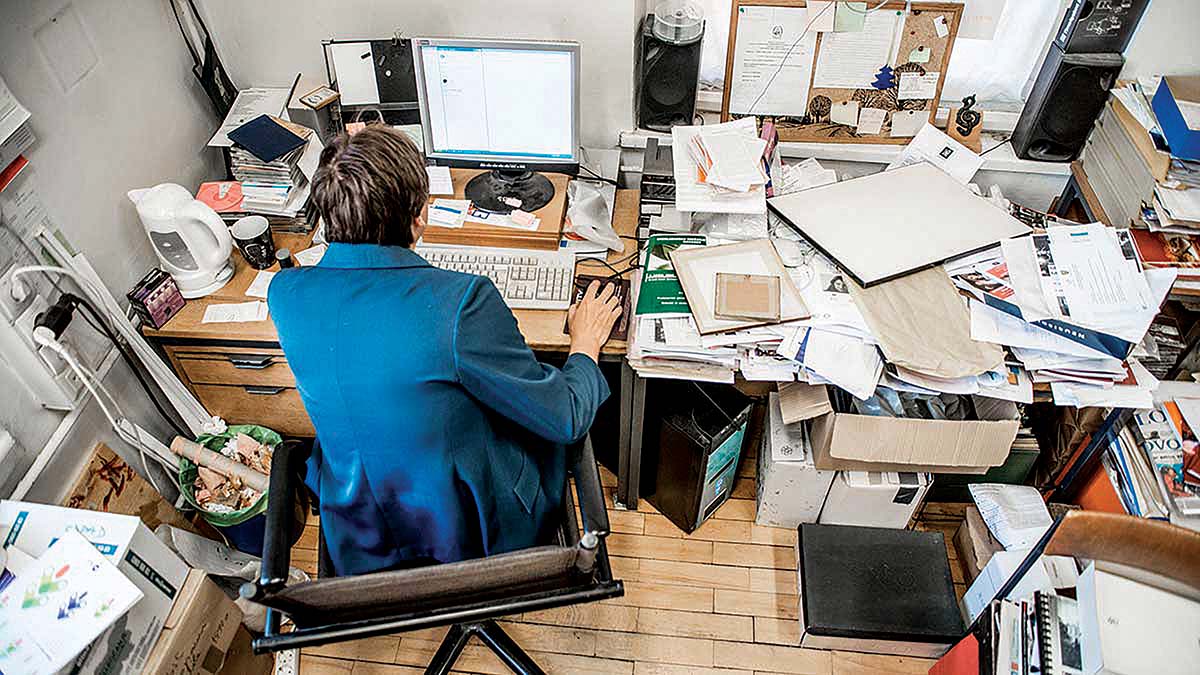AS I SEE IT
BY MARIANNE HERON
 The Japanese call it Suteru! and it’s the answer to TMS (too much stuff ) syndrome and the literal translation is ‘throw away’.
The Japanese call it Suteru! and it’s the answer to TMS (too much stuff ) syndrome and the literal translation is ‘throw away’.
De-cluttering sounds a bit less threatening and was the topic of a long running BBC2 TV series called The Life Laundry which liberated hoarders from paralysing accumulations of possessions.
TMS goes to heart of a paradox in consumer society. We love acquiring stuff: clothes, books, music, ornaments, electronic gear… But the other frugal side of our nature refuses to get rid of our possessions. It seems wasteful to part with them and, before we know it, we are mired in clutter.
Suteru! is the title of a best-selling book by Nagisa Tatsumi translated from Japanese, the English title being The Art of Discarding. According to Nagasi holding onto things from the past that we no longer use holds us back from our current selves, quite aside from the depressing untidiness it causes.
If you find yourself hunting desperately for a document amid stuffed files or unable to find the pair of trousers you want in a crammed wardrobe, maybe it’s time to learn the art of de-cluttering. So how do you make a start on clutter cleansing?
- Parting with possessions can be quite emotionally tiring so it’s a good idea to tackle one area, or even one drawer at a time.
- Tidying things into storage boxes isn’t necessarily the answer, it simply hides objects from sight and puts off getting shot of them.
- Hanging onto things ‘in case’ you might need them has more to do with that security blanket feeling than with practicality – out with them!
- Try on those clothes at the back of the cupboard you don’t wear – if they don’t look or feel right it’s time to part with them.
- If you are a hoarder enlist the help of a ‘chukker‘ in order to help with clearance. My Mum used to sort things into piles 1) keep, 2) maybe and 3) you must be joking!
- No need to feel guilty about de-cluttering when there are charity shops and, hopefully, post- pandemic car boot sales where your discards can raise funds for others or for yourself.
- Once you have sorted out an area you will discover how liberating it is to de-clutter and you will be enthused to carry on doing more.
But why do we hoard possessions and in extreme cases allow clutter to take over our homes? It can be the way that we attach undue emotional importance to objects, they remind us of people dear to us or of special occasions.
Hanging onto them brings back memories but it also pulls us back to the past rather than being in the present. Another reason apparently is that we over- imagine the usefulness of the object but fail to make the object useful. Like the outdated jacket you mean to alter but never do or the table with the broken leg which sits in the garage and never gets mended.
Understanding this can help us to see clutter for what it is. Clutter doesn’t have to be thrown away; it can be recycled and made useful by resourceful, needy folk, brought to charity shops or sold at a car boot sale or a vide grenier (French for empty the attic) but of course there is always the temptation to acquire more stuff if you go to one of those!
* Marianne Heron is a journalist and author of Irish Life’s Rewire Don’t Retire. She is also studied fashion at St Martin’s College of Art,
London

















